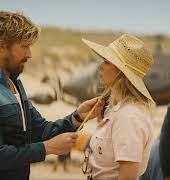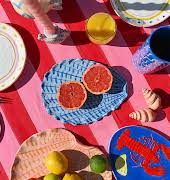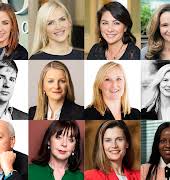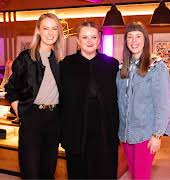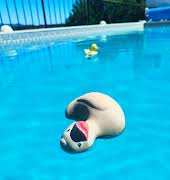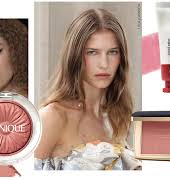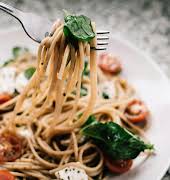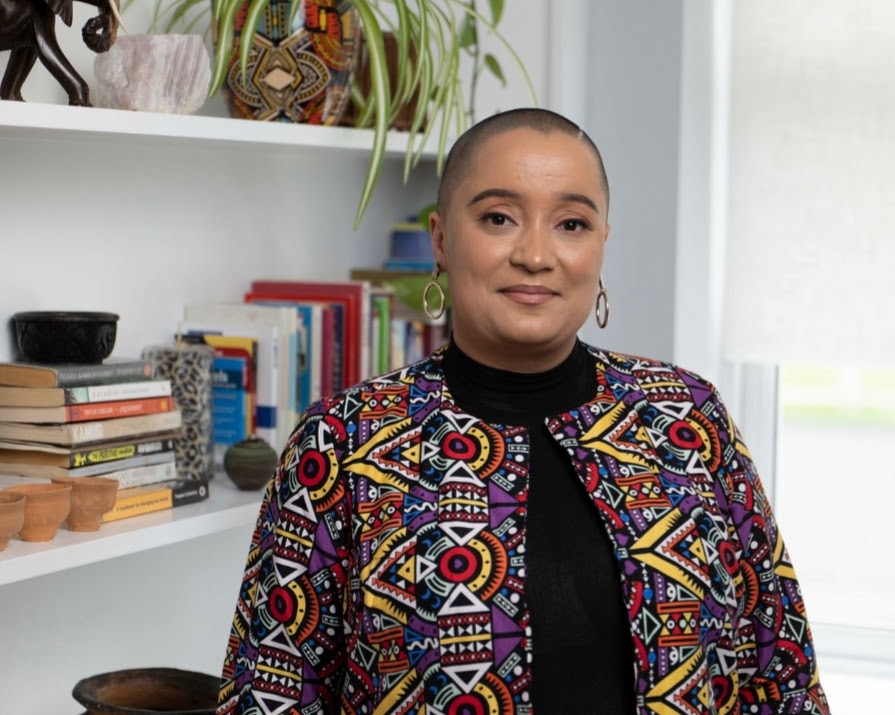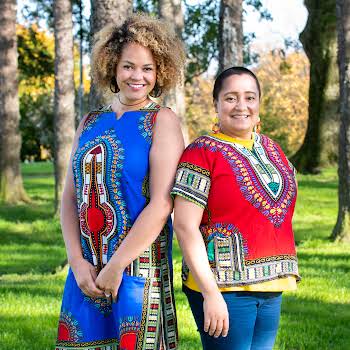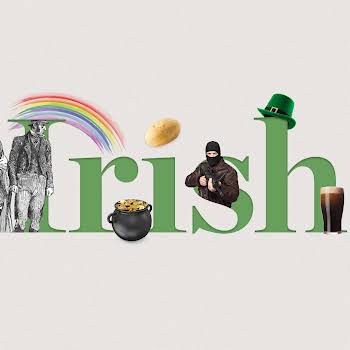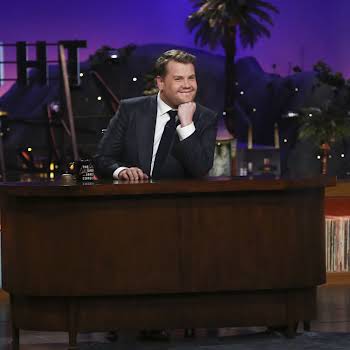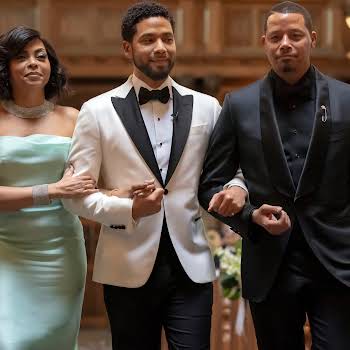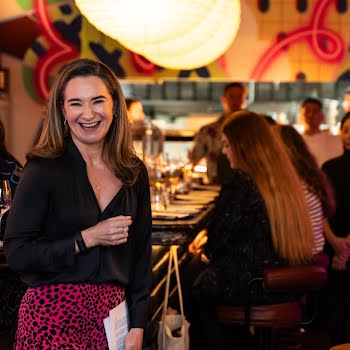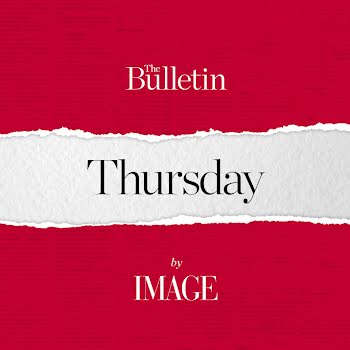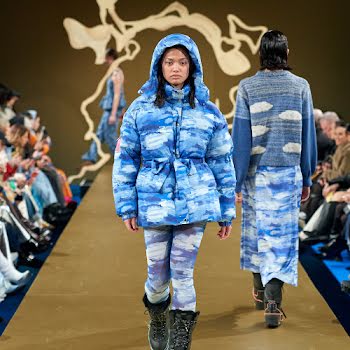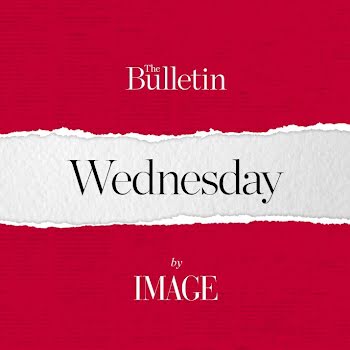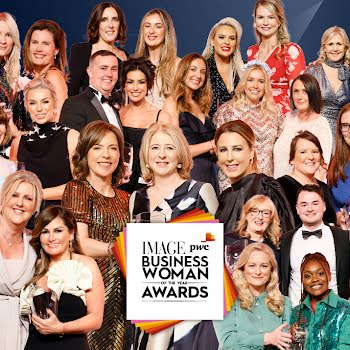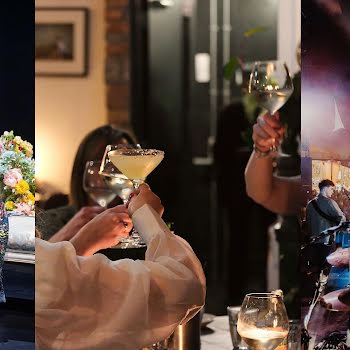By Lauren Heskin
22nd Aug 2020
22nd Aug 2020
Anti-racism advocate Claudia Hoareau speaks to us about the precipice on which Ireland currently sits, and the importance of tackling racism in Ireland now before the weight and ways of history sweep us any further along a dangerous path. This article is part of a committed partnership between IMAGE and The Irish Network Against Racism (INAR). Each month IMAGE will work with INAR to shine a light on a person or project that is celebrating and promoting diversity and equality in Irish life.
“Listen, is everyone biased? Yes. Do we have a scary rise in racism in Ireland right now? Yes,” states Claudia Hoareau.
“We never had organised far right groups before. Now we have political parties who are very vocal about their anti-immigration stance, we have a political party who had a rally outside the Dáil last month and the symbol that they used on their banners was a noose. We have websites set up to name and shame white women that are “breeding” with black people. We have social media pages using images of groups of black youths to generate false narratives about the black community and spinning incidents that are unrelated to create anti-black narratives*.”
This, I should say, is not how Claudia, a Kenyan Irish Creole anti-racism advocate and speaker, began our interview. She took me through her experience growing up in Kenya, moving to Ireland at 14 and how she began speaking to schools about diversity while she was still in school, concerned about the experiences her younger sister and cousins would have if she did not try to educate others. We covered her work volunteering for the Irish Network Against Racism (INAR) before she joined its board and spoke in broad sweeps about how the world has (and has not) changed since the murder of George Floyd.
I get the sense she has to do this a lot. Lead with her own story, personalise and soften it before she can come in with the facts. That racism is on the rise in Ireland. That we have a history of putting systematic racism behind walls and away from view – mother and baby homes, industrial schools, Magdalene laundries and now direct provision. That there are concrete ways we can stem racism to ensure Ireland never reaches the level of that in the US.
I lead with these facts because it’s something I can do, as a white, middle-class Irish journalist, that years of experience have told Claudia she shouldn’t say too baldly or too soon lest it is ignored, minimised or shoved under an already-lumpy rug.
But let’s get stuck in, shall we?
Racism in Ireland
We don’t like to look at racism in Ireland directly. We’re not sure what might lie beneath once we start digging, if we might be tarred with the same, shameful brush. But this reluctance, Claudia points out, dangerously allows racism to permeate under the radar. “This reluctance is making people blind to what’s really going on right now.”
There’s a comfort in being wrapped up in the America framing of race, both in the present moment and in a historical context. It’s a problem they have, a problem they’ve always had. As Claudia says, “we think, because we’re not dealing with racism on the same scale now, that we never will.”
However, as musician Loah so eloquently put it on a recent Instagram Live, racism is a spectrum. At one end is the brutal murder of George Floyd at the hands of police, which rightfully sparked protests in dozens of countries. But at the other end are the microaggressions and unconscious biases that permeate nearly every culture, including our own. The sooner we recognise that these experiences are different points along the same path, the more vital it becomes to tackle racism in Ireland now. As Claudia says, “We’re early on in the journey compared to other countries and we have an opportunity to do something and do it right.”
Hopefully, by now, we have accepted that racism exists in Ireland. And not just individual incidents of racism, but from a subconscious level right up to systems of government. A quick Google of the treatment of mixed race babies in mother and baby homes and the current system of direct provision ought to clear up any lingering questions.
So, how do we go about making Ireland an actively anti-racist place?
National changes
On a national level, Claudia and the INAR have been calling for hate crime legislation. Five out of six incidents of racism go unreported, Claudia says, and those that are reported to the INAR’s iReport system are not the late-night scuffle on the street that you might expect, but most are during the day, people travelling on public transport to and from work, or on their lunch hour. Claudia also tells me that the INAR has seen a rise in incidents of racism aimed at women, specifically pregnant women or those with children. “Things like, ‘Don’t tell me you’re gonna bring another n-word into this world.’ There’s a very gendered dimension to the type of racism that we see manifested in Ireland.”
Without specific legislation to tackle this kind of racist abuse, it’s very difficult to police. Some might argue racism in Ireland can be tackled under the Equal Status Act, which protects against nine forms of discrimination – gender, marital status, family status, age, disability, sexual orientation, race, religion, and membership of the Traveller community.
Claudia points out though, in 2015 “we were able to lift out LGBTQI+ rights from those nine grounds of discrimination and tackle it as a standalone issue.” Similarly with the Repeal the 8th movement in 2018. Granted, both of those campaigns centred around removing discriminatory legislation rather than adding protective legislation but the question still remains the same – if we can lift out specific issues for discriminated groups like the LGBTQI+ community in Ireland, why can’t we do that for people of colour in Ireland?
Personal changes
On a more individual level, Claudia recognises that “there’s a huge amount of fear amongst people about what they don’t know but also don’t want to get wrong… nobody wants to be tokenistic, nobody wants to be offensive.” That fear can be paralysing, stuck between what you want to achieve and how you should partake and execute that goal.
However, bearing the load of their own discrimination is a heavy burden for discriminated groups to carry. White voices and white ears have a significant part to play in Ireland’s progress. Even something as simple as intervening when you hear a racist comment being flung across a bus. “I can tell you from my own experience, my husband’s experience, my dad’s experience,” says Claudia, “the impact that a racist incident has can be vastly diminished or exacerbated [by the action or inaction of a white bystander].” If no one steps in, “the story you tell yourself is everybody thinks the same. They all think I’m a ‘black bitch’ or whatever it is this gentleman said.”
Listening is another important tool. Listening without trying to contextualise or reposition another person’s experience. “I feel like minimising my experiences of racism has been a theme throughout my life in Ireland,” says Claudia. “People do it in a very well-meaning way to minimise the pain, saying, ‘ah sure he didn’t mean it’ or ‘he’s just a stupid drunk, take no mind of him’”. The reality is that this not only minimises that person’s words but the entire interaction. “They’re trying to minimise my pain but it also feels like they’re not really hearing me,” she explains. “So, while that minimisation is well-intentioned, it actually can have a really detrimental impact.”
Are we still listening?
George Floyd’s murder and the following protests temporarily loosened some of this immobility – visits to INAR’s webpage increased by 2,000% and their phones were ringing off the hook. But slowly, interest waned, leaving people of colour to try to keep up the momentum.
“It’s not enough to depend on ethnic minorities or people of colour to educate you or to carry you through this. Even people of colour are still learning, we’re still trying to unpack all of this stuff, we’re still trying to deal with our inherited trauma. What are you doing to educate yourself?” To partake we need to learn, and sometimes falter, yes. But they’re asking for support, shouting for it in fact, from the Irish branch of Black Lives Matter, INAR, from the Yellow Flag school system, from behind the walls of direct provision centres.
Maybe we couldn’t, or more likely wouldn’t, hear it before.
But can you hear it now?
Claudia Hoareau is an anti-racism advocate and consultant based in Dublin. She works with companies and organisations to not only tackle inclusion and diversity at a policy level but to facilitate conversations about diversity in the workplace and the wider world. If you’re interested in working with Claudia or learning more about her extensive anti-racism work, her email is [email protected].
Portrait of Claudia by Cian Brennan
*Claudia is referring to a recent house fire in Balbriggan that was an electrical fault but was described by far-right groups as black gang violence.
Read more: ‘The past few weeks have dredged up difficult memories’– growing up as Irish-Nigerian in Ireland
Read more: ‘Don’t feel guilty for being white – do something with it’ Dr Ebun Joseph speaks out
Read more: Racism in Ireland: “People would say things like ‘go back to your own country'”


